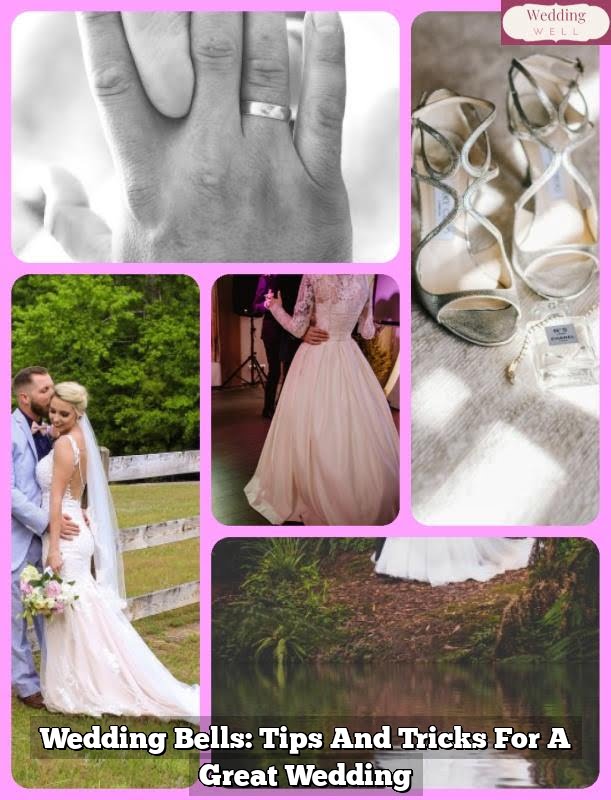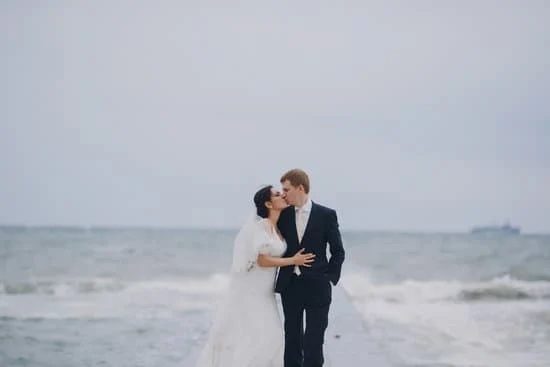The tradition of “Speak Now or Forever Hold Your Peace” is a well-known part of many wedding ceremonies. But what happens if someone actually does object during the ceremony? In this article, we will explore the legal implications, historical cases, social and cultural significance, as well as the emotional impact on the couple and guests when someone objects at a wedding.
The phrase “Speak Now or Forever Hold Your Peace” dates back to early Christian weddings and is typically used as an opportunity for anyone who may have a valid reason to oppose the marriage to come forward. While it is largely seen as a charming and traditional part of the ceremony in modern times, it can sometimes lead to unexpected and dramatic moments.
In this article, we will delve into the various aspects of what happens when someone objects at a wedding. From exploring historical cases where objections were raised to examining the legal implications of such an interruption, we will seek to provide insights into how couples, officiants, and guests alike can navigate such potentially sensitive situations. Additionally, we will also discuss ways to prevent potential objections and explore modern perspectives on this age-old tradition.
The Legal Implications of Objecting at a Wedding
Marriage Laws and Objections
In most jurisdictions, the act of objecting at a wedding is not just a dramatic gesture-it holds legal implications as well. When someone objects during the “speak now or forever hold your peace” part of the ceremony, it can potentially impact the validity of the marriage.
Marriage laws vary by state or country, but in general, if an objection is based on a legal reason such as one of the individuals already being married or not meeting the age requirement, it could result in the interruption or even cancellation of the wedding.
Responsibility of Officiants and Couples
Officiants are typically required to ensure that all legal requirements for marriage have been met before conducting the ceremony. It is also their responsibility to handle any objections that may arise during the ceremony. If an objection is raised, they may have to stop the proceedings and investigate the claim before proceeding with the marriage. Couples are advised to understand their local marriage laws and work with their officiant to prevent potential objections.
Legal Recourse
If an individual raises a false objection out of malice or with malicious intent to disrupt the ceremony, there may be legal repercussions. In some cases, this could be considered defamation or intentional infliction of emotional distress. However, proving such intent can be difficult and often requires legal action after the fact. This serves as a reminder that objecting at a wedding should not be taken lightly, as it can have serious legal ramifications for all parties involved.
Historical Cases of Wedding Objections
Notable Instances
Throughout history, there have been several notable instances where individuals have objected at a wedding ceremony. One famous case dates back to the 19th century in England when a man interrupted a wedding to declare that the bride was already married to him.
This resulted in a legal dispute and ultimately led to the annulment of the marriage. Another well-known case is that of famous actress Julia Roberts, whose wedding ceremony was interrupted by an ex-partner who professed his love for her.
Legal Ramifications
In many historical cases of wedding objections, the legal ramifications were significant. In some instances, objections led to legal disputes and court proceedings to determine the validity of the marriage. These cases often involved complex legal proceedings and had lasting effects on the individuals involved.
Social Impact
The social impact of historical wedding objections varied depending on the cultural context and time period. In some cases, objections were met with shock and disbelief, while in others they were seen as dramatic or scandalous. The way in which such objections were perceived by society often reflected broader societal attitudes towards marriage, love, and relationships.
Social and Cultural Significance of the Wedding Ceremony
The wedding ceremony is a significant event in many cultures and societies around the world. It symbolizes the union of two individuals, their families, and their communities. The significance of the wedding ceremony varies depending on the cultural and social context, but it often represents the beginning of a new family unit and is steeped in tradition and custom.
In many cultures, weddings are not just about the union of two individuals but also about the coming together of two families. Weddings are seen as a way to strengthen social ties, create alliances, and maintain traditions. In some cultures, weddings are also associated with religious or spiritual significance, symbolizing not only the union of two people but also their commitment to their faith.
The cultural significance of the wedding ceremony also extends to the rituals and customs involved. From traditional attire to specific ceremonies or rituals, each culture has its own unique way of celebrating marriage. These traditions often emphasize the importance of marriage as an institution that goes beyond just the individuals involved, highlighting its role in maintaining social cohesion and continuity.
| Aspect | Description |
|---|---|
| Social Significance | Weddings represent the coming together of families and communities. |
| Cultural Significance | Weddings are steeped in tradition and customs that reflect a culture’s values and beliefs. |
| Rituals and Customs | Each culture has its own unique wedding rituals that highlight the importance of marriage as an institution. |
Handling an Objection at a Wedding
Weddings are joyful occasions filled with love, hope, and commitment. However, there may be instances when someone objects during the ceremony. This tradition dates back to a time when marriage was primarily a social and economic contract rather than a declaration of love. In today’s modern weddings, objections are rare but can still occur. Here’s what typically happens if someone objects at a wedding:
1. Immediate Response: When an objection is raised during the ceremony, the officiant will usually pause the proceedings and address the individual who has spoken up. They may ask for clarification or explanation of the objection.
2. Resolution Attempt: The officiant or another designated person may attempt to resolve the objection privately with the individual who raised it. This could involve discussing their concerns and finding a way to move forward with the ceremony.
3. Decision Making: Ultimately, it is up to the couple getting married to decide how they want to proceed. They may choose to address the objection, continue with the wedding as planned, or make adjustments to their vows or ceremony in response to the objection.
The significance of handling an objection at a wedding cannot be understated, as it can have a lasting impact on all those involved in the ceremony. Therefore, proper handling of objections is crucial in maintaining the sanctity and solemnity of the occasion while also respecting everyone’s voice and feelings.
In some cases, objections are raised due to valid concerns about one partner’s previous marital status or legal impediments to their union. However, it’s important for couples and their officiants to create an environment where potential issues are addressed beforehand in order to prevent any unwelcome surprises during this once-in-a-lifetime event.
Emotional Impact on the Couple and Guests
The emotional impact of an objection at a wedding can be significant for both the couple and the guests. For the couple, it can be a devastating and humiliating experience, as they are publicly challenged in front of their loved ones on what is supposed to be one of the happiest days of their lives. This kind of interruption can create feelings of embarrassment, anger, and confusion, and may even lead to lasting trauma.
For the guests, witnessing an objection at a wedding can also be emotionally distressing. It can create tension and discomfort in what is meant to be a joyous occasion, potentially causing feelings of unease and awkwardness. Guests may feel unsure about how to react or handle the situation, as they are caught between wanting to support the couple and not wanting to exacerbate the conflict.
In some cases, objections at weddings have led to heated confrontations and altercations among those present. This can further heighten emotions and turn what should have been a beautiful celebration into a negative and distressing event for everyone involved.
| Emotional Impact | Couple | Guests |
|---|---|---|
| Feelings | Humiliation, anger, confusion | Unease, awkwardness |
| Potential Altercations | Tension between guests | Discomfort among attendees |
Preventing Potential Objections
When it comes to preventing potential objections at a wedding, there are a few important steps that can be taken to minimize the chances of someone speaking out during the ceremony. While objections are rare, they can still happen, and it’s crucial for couples to take certain precautions to ensure their special day goes smoothly.
One way to prevent potential objections is by having open and honest communication with both families involved in the wedding. This could involve addressing any potential conflicts or concerns well before the big day arrives. Additionally, couples should consider establishing guidelines for who will be invited to the ceremony, ensuring that only those who support the union are present.
Another important step in preventing objections is working closely with the officiant or celebrant who will be conducting the wedding ceremony. Couples should have discussions about how an objection would be handled if one were to arise, and whether or not there are any specific protocols that need to be followed in such a situation.
In addition, couples may also choose to address potential objections directly during their vows or in their ceremony script. They could express their commitment and love for each other, as well as their determination to move forward with the marriage despite any doubts from others.
- Have open and honest communication with both families
- Establish guidelines for who will be invited to the ceremony
- Work closely with the officiant or celebrant
- Address potential objections directly during vows or in ceremony script
Modern Perspectives on Wedding Objections
In conclusion, the act of objecting at a wedding has been a longstanding tradition with historical, legal, and social implications. While it may seem like a rare occurrence in modern times, it is important to understand the potential emotional impact on the couple and guests if such an objection were to happen. Despite the legal significance of objections at weddings, there are ways to handle and prevent them from occurring.
In today’s society, the tradition of “speak now or forever hold your peace” has evolved into a symbolic part of the wedding ceremony rather than a serious legal matter. However, it is essential for couples to consider how they would like to address any objections that may arise. Whether it’s through open communication with their officiant or by stating their intentions clearly beforehand, couples can take proactive steps to minimize the chances of objections during their wedding.
Overall, while objections at weddings may have had more weight in historical and legal contexts, they still hold significance in terms of emotional impact and social expectations. With understanding and proactive measures, couples can navigate this tradition in a way that respects its history while also aligning with modern perspectives on marriage ceremonies.
After all, the goal of a wedding is for two individuals to publicly declare their love and commitment to each other in front of their loved ones – and nothing should overshadow that special moment.
Frequently Asked Questions
Can a Wedding Go on if Someone Objects?
If someone objects at a wedding, it can create a very dramatic and tense situation. In most cases, the objection would need to be very serious or legally valid for the wedding to come to a halt.
Why Does the Officiant Ask if Anyone Objects at Weddings?
The officiant asks if anyone objects at weddings because it is part of the traditional wedding ceremony. This question provides an opportunity for anyone who may have a legal reason why the marriage should not proceed to speak up.
Why Do They Say Speak Now or Forever Hold Your Peace?
The phrase “speak now or forever hold your peace” is often used in weddings as a way of giving one last chance for any objections to be raised before the marriage vows are exchanged. It adds a sense of formality and tradition to the ceremony.

Welcome to my blog about home and family. This blog is a place where I will share my thoughts, ideas, and experiences related to these important topics. I am a stay-at-home mom with two young children. I hope you enjoy reading it! and may find some helpful tips and ideas that will make your home and family life even better!





